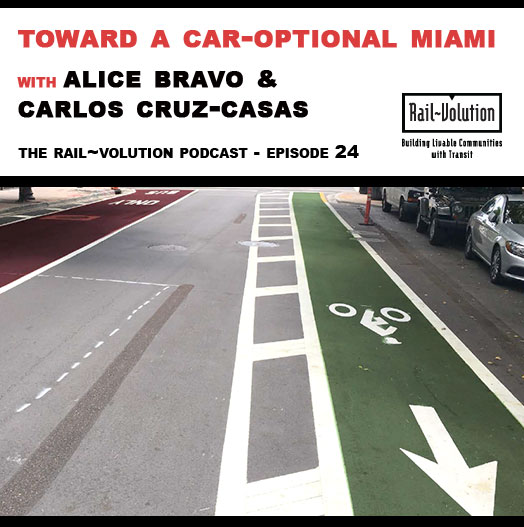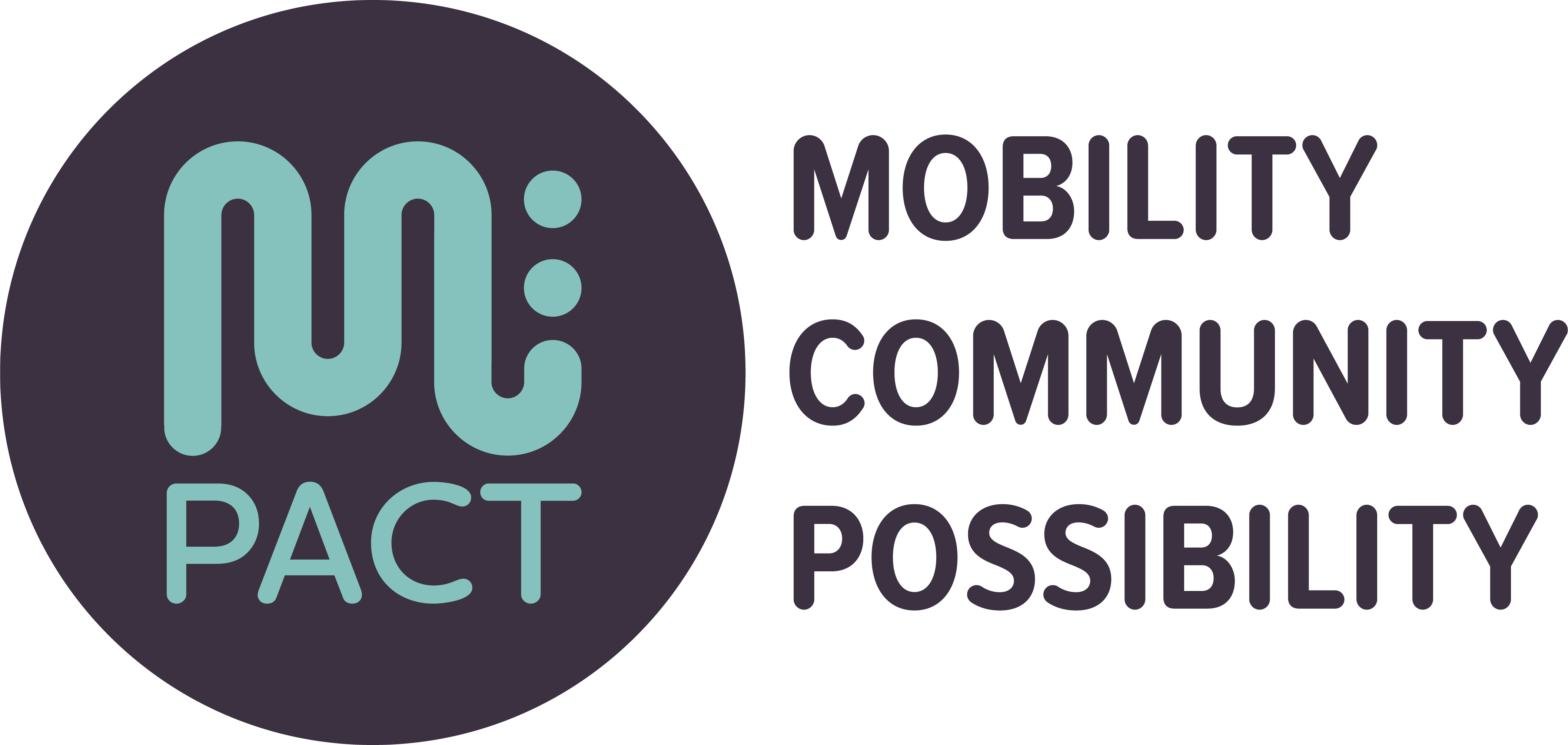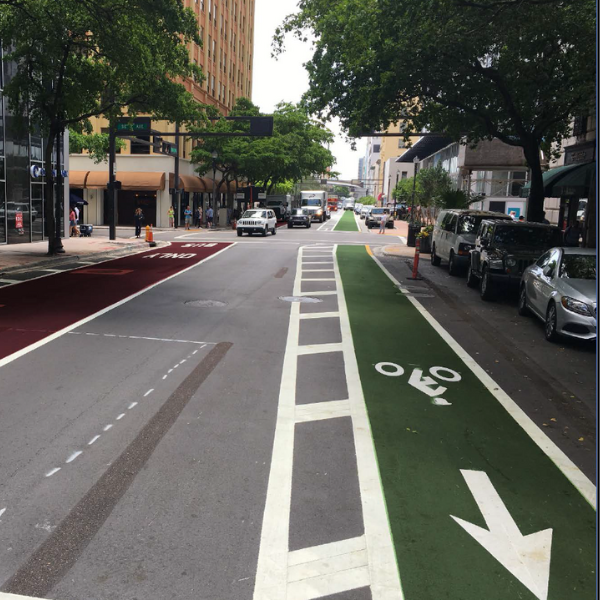Episode 24: Toward a Car-Optional Miami
Our guests this episode are Alice Bravo and Carlos Cruz-Casas, Director and Deputy Director, respectively, of the Miami-Dade Department of Transportation and Public Works. This episode was recorded during the 2019 Rail~Volution transit and community development conference in Vancouver, BC.
Topics:
Tags:

Miami-Dade County is deep in planning for transit expansion on several different corridors at once, via the SMART Plan approved in 2016 by the Miami-Dade Transportation Planning Organization (TPO). They also are working on a redesign of their regular route bus network, in a unique collaboration with a nonprofit organization, Transit Alliance.While these projects move forward, the county is seizing a range of technology options, from signal-priority for buses to contactless payment, starting with buses and trains.
“Technology is a shorter term way to make changes,” says Alice Bravo, and part of creating a more car-optional Miami-Dade. On the podcast, Alice Bravo and Carlos Cruz-Casas discuss:
- account-based payment systems and integration with micro- and shared mobility parts of the transportation system.
- managing right-of-way with street signals and digital signs (the rules of engagement with the road) to improve travel time and movement not only for buses but for all mobility modes, public and private.
Miami-Dade County is one of the founding members of the Open Mobility Foundation, which is working to establish shared data standards between cities and providers of scooters, bike-share and other mobility options. Miami-Dade County and the South Florida region are working to expand mobility options, to better serve existing riders and lure more people out of their cars.
“Through technology we can improve the efficiency of the road and improve the people-through-put of the corridor . . . and attract more people to our transit system.” – Alice Bravo


